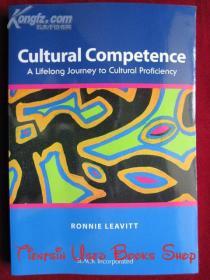
临时通知 :(1)大额订单发顺丰、京东,小额订单发圆通、中通等,一般情况下当日即可发货(16:00前付款)。如需其他物流配送,请消息留言联系。(2)小店没有发票。如需代开,加收“(书价+运费)*10%”的税点,务请提前联系。
Cultural Competence: A Lifelong Journey to Cultural Proficiency(货号TJ)文化能力:文化熟练程度的终身旅程
¥ 342 ¥ 71.95 九五品
仅1件
送至北京市朝阳区
运费快递 ¥10.00
作者Ronnie Leavitt
出版社Slack Incorporated
ISBN9781556428760
出版时间2010
版次1
印刷时间2010
印次1
装帧平装
开本25.7*18.1
纸张胶版纸
页数288页
定价71.95元
货号TJ0498-J806-c130
上书时间2022-07-02
评价172好评率 99.95%
- 在售商品 暂无
- 平均发货时间 9小时
- 好评率 99.95%
- 最新上架
商品详情
- 品相描述:九五品
- 商品描述
-
本书为英语原版,平装本,原定价71.95美元,净重630克,馆藏。【图书分类:医药、卫生 > 预防医学、卫生学】In today’s multicultural society, cultural competence will play an increased role in the physical therapists’ daily routine from the classroom to the clinic. As key phrases will be heard more and more in the health care community: knowledge, awareness, attitude, skills, a text that can take cultural competence learning to the next level is essential.
Cultural Competence: A Lifelong Journey to Cultural Proficiency provides a comprehensive, theoretical and practical approach to increasing knowledge and awareness, improving attitudes, and providing the necessary skills for practicing cultural competence each day.
Dr. Ronnie Leavitt, along with a group of contributors with a range of backgrounds, both in physical therapy and the social sciences, provides an evidence-based text looking to explore practical applications in a wide array of settings. Cultural Competence addresses cultural competence by discussing the special considerations one needs to learn about rather than specific population groups. Also discussed is how different theorists describe cultural competence, as well as methods of measuring cultural competence and government policies regarding cultural competence.
Chapter Topics include:
• Relationship between poverty and health
• Health disparities between populations
• Cross-cultural communications
• Health beliefs and behaviors associated with disability and rehabilitation
• Community-based rehabilitation and how to address cultural competence in developing nations
• Service learning and cultural competence
Cultural Competence: A Lifelong Journey to Cultural Proficiency is the ideal text for physical therapy students and clinicians, occupational therapy students and clinicians, and other rehabilitation professionals looking to begin a journey toward understanding how to take into account a patient’s cultural background in the classroom or clinic.
Contents:
Acknowledgments
About the Editor
Contributing Authors
Preface
Chapter 1: Introduction to Cultural Competence Ronnie Leavitt, PhD, MPH, PT
Chapter 2: Understanding the Nature of Culture Christine A. Loveland, PhD
Chapter 3: The Historical Development of Theory, Models, and Assessment Tools Ronnie Leavitt, PhD, MPH, PT
Chapter 4: Exploring Cultural Diversity: Eliciting a Client’s Ethnography Ronnie Leavitt, PhD, MPH, PT
Chapter 5: Disability Across Cultures Ronnie Leavitt, PhD, MPH, PT and Susan E. Roush, PhD, PT
Chapter 6: Racial and Ethnic Disparities in Health Status, Health Care, and Physical Therapy Kristin Lefebvre, PhD, CCS, PT and Jill Black Lattanzi, EdD, PT
Chapter 7: Poverty and Health: Social Status Differences in Leading Health Indicators Rebecca Reviere, PhD and Valerie R. Stackman, MA
Chapter 8: Understanding Racism Joseph W. Smey, EdD, PT
Chapter 9: Cross-Cultural Communication Helen L. Masin, PhD, PT
Chapter 10: Developing Cultural Competence Through Service Learning Pamela J. Reynolds, EdD, PT
Chapter 11: Physical Therapy and Cultural Competence in the Global Community: Moving from a Bio-Medical to a Social Justice Model Ronnie Leavitt, PhD, MPH, PT
Chapter 12: The Practice of Cultural Competence in the 21st Century Ronnie Leavitt, PhD, MPH, PT
Appendix A: Resources for Additional Information on Cultures Outside of the United States
Appendix B: Resources for Physical Therapists Interested in Global Health
Appendix C: Resources for Establishing a Culturally Competent Practice
Index
Review:
“Cultural competence is a complex concept, and the authors provide a loose framework for cultural competence while presenting sufficient structure to allow the reader/practitioner to find their own level of understanding. This book is very relevant to physical therapy as it provides an opportunity for practitioners to examine their own cultural competence…On the whole, this book provides reasonable value for money for either individual purchase or as part of a departmental library.”
- Patricia Smith, Physiotherapy
About the Author:
Ronnie Leavitt has been instrumental in bringing the socio-cultural and public health perspective to the profession of physical therapy. Dr. Leavitt began her career as a physical therapist at Harlem Hospital (1968) where she quickly learned that her “life of privilege” is not universal. In 1971, she embarked on the first of her many trips to developing nations that further reinforced her thirst for exploring different ways of life and cultural perspectives.
Dr. Leavitt pursued her graduate work in public health and medical anthropology. These areas of study matched her interests in people from diverse cultures, global health, and social justice. Her doctoral dissertation, Health Beliefs and Behaviors of Families With Disabled Children in Rural Jamaica, led to the beginning of her expertise in cultural competence and international rehabilitation. During the early 1980s, these areas were rather new to most physical therapists.
Highlights of Dr. Leavitt’s professional accomplishments include being a co-founder of the Cross-Cultural and International Special Interest Group (CCISIG) of the APTA and Physical Therapy Overseas (PTO), a component of Health Volunteers Overseas (HVO). She has published extensively regarding cultural competence and international rehabilitation, has had professional presentations throughout the U.S. and internationally, and has volunteered as a physical therapist in developing nations. Dr. Leavitt has been honored to receive recognition for her work by both lay and professional groups, including the APTA CCISIG and the APTA Department of Minority and International Affairs.
Dr. Leavitt was a faculty member in the Department of Physical Therapy at the University of Connecticut from 1979 to 2009. She has recently retired and is continuing to pursue clinical, academic, and volunteer experiences.
-

【封面】
-

【封底】
-

【目录】
-

【内页】
-

【内页】
-

【内页】
-

【内页】
相关推荐
-

CULTURAL ANTHROPOLOGY
九品上海
¥ 68.00
-

Cultural Anthropology
九品北京
¥ 200.00
-

CULTURAL ANTHROPOLPGY
八五品平顶山
¥ 42.20
-

CULTURAL ANTHROPOLPGY
八五品平顶山
¥ 42.20
-

Cultural Psychology
九品成都
¥ 150.00
-

CULTURAL EXCHANGE
八五品衡水
¥ 15.00
-

Cultural Anthropology
九品上海
¥ 118.00
-

Cultural Anthropology
九品无锡
¥ 45.00
-

cultural anthropology
九五品安庆
¥ 68.00
-

Cultural Realism
八五品上海
¥ 220.00
为你推荐

变形金刚写真集
九品武汉
¥3.00

瓷胎珐琅彩器。有小的瑕疵,介意者勿拍。年代未知,保真瓷不包年代。
五品呼和浩特
¥368.00

毛泽东书信选集
九品青岛
¥78.00

金石录 清刻本 2函16册
七五品北京
¥58000.00

毛泽东选集,一版一印四本一套。大32开。品相如图,不带书衣,如图,第一卷华东一印,第二第三第四卷一版一印,如图,
八品雅安
¥1000.00

清刻本《大六壬大全》13册全
七品景德镇
¥2280.00
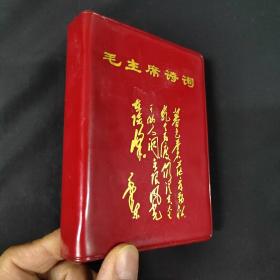
稀缺本 **红宝书 掌中宝 直板直角《毛主席诗词》封面为毛主席诗词金色字体 扉页有林彪题词 并附我们伟大领袖毛主席和他的亲密战友林副主席像一张 红卫兵新杭州大学师编写1968年七月 自然旧收藏佳品
八五品衢州
¥358.00

与官员谈国学
九品合肥
¥5.00
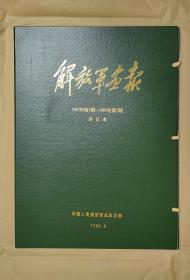
解放军画报 第1-37期完整一套:(极品画册,收藏精品:1967年第1-30期、1968年第1-7期,合计共37期,彩页多多,印刷精良,增刊全在,4开本,画报社制作的合订本,洒金字、绿色漆布面、厚纸板包装盒,外盒10品内画报98-10品)
九五品北京
¥68866.00

义务教育课程标准实验教科书 小学语文
九品重庆
¥399.00
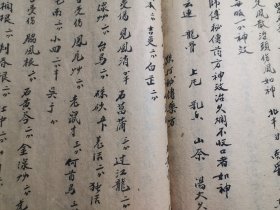
跌打秘传医家指引穴法
七五品长沙
¥1599.00

电影版变形金刚 写真集
九品北京
¥8.00
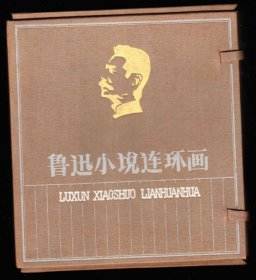
鲁迅小说故事连环画一套十一本全-极品获奖大套书带孤品盒
九五品黄山
¥120000.00

肉制品卤酱秘制配方 汇集各地特色卤,酱制品制作技术与配方,用法用量详细。
九品成都
¥120.00

宣纸特藏钤印本 我到人间只此回:叶嘉莹导读三百年后第一女词人吕碧城词全编 梦雨天华集 全一函二册
全新东莞
¥399.00

毛泽东选集(合订一卷本)
八五品北京
¥800.00

毛泽东选集(第一卷,第二卷,第三卷)大32开精装竖版
八五品淮安
¥2188.00

燕蕾国画。尺幅 很大。只发画芯,不发框,运费12.带框一起发,不包邮,运费到付。真迹。
六品呼和浩特
¥368.00

礼包:台湾文津出版社版 冉光荣《中国藏传佛教史》(仿皮精装;精装印200本,1996年十月 一版一印)自然旧 +台湾中国文化大学出版社 张其昀ChangChi-yun《中华精神 Chinese Spirit》(漆布精装)1977年6月版,自然旧
全新北京
¥129.00
![《西学基本经典》(全套100册 精装 -中国社会科学)1999年一版一印 品好★ [英文版 含《哲学类 22册、伦理学 7册、宗教学 11册、政治学 11册、经济学 12册、社会学 6册、人类学4册、心理学 8册、法学 9册、历史学 10册》:理想国、纯粹理性批判、逻辑哲学论 哲学研究、存在与虚无、动机与人格、自由秩序原理、正义论、心理学原理 等 一百册 对照 汉译世界学术名著丛书]](https://www0.kfzimg.com/sw/kfzimg/1663/01424c0a06a9c4c4a4_s.jpg)
《西学基本经典》(全套100册 精装 -中国社会科学)1999年一版一印 品好★ [英文版 含《哲学类 22册、伦理学 7册、宗教学 11册、政治学 11册、经济学 12册、社会学 6册、人类学4册、心理学 8册、法学 9册、历史学 10册》:理想国、纯粹理性批判、逻辑哲学论 哲学研究、存在与虚无、动机与人格、自由秩序原理、正义论、心理学原理 等 一百册 对照 汉译世界学术名著丛书]
九品苏州
¥8500.00
— 没有更多了 —
微信扫码逛孔网
无需下载

















非常好👍👍❤️❤️😄
已收到,下次有需要会再来😄